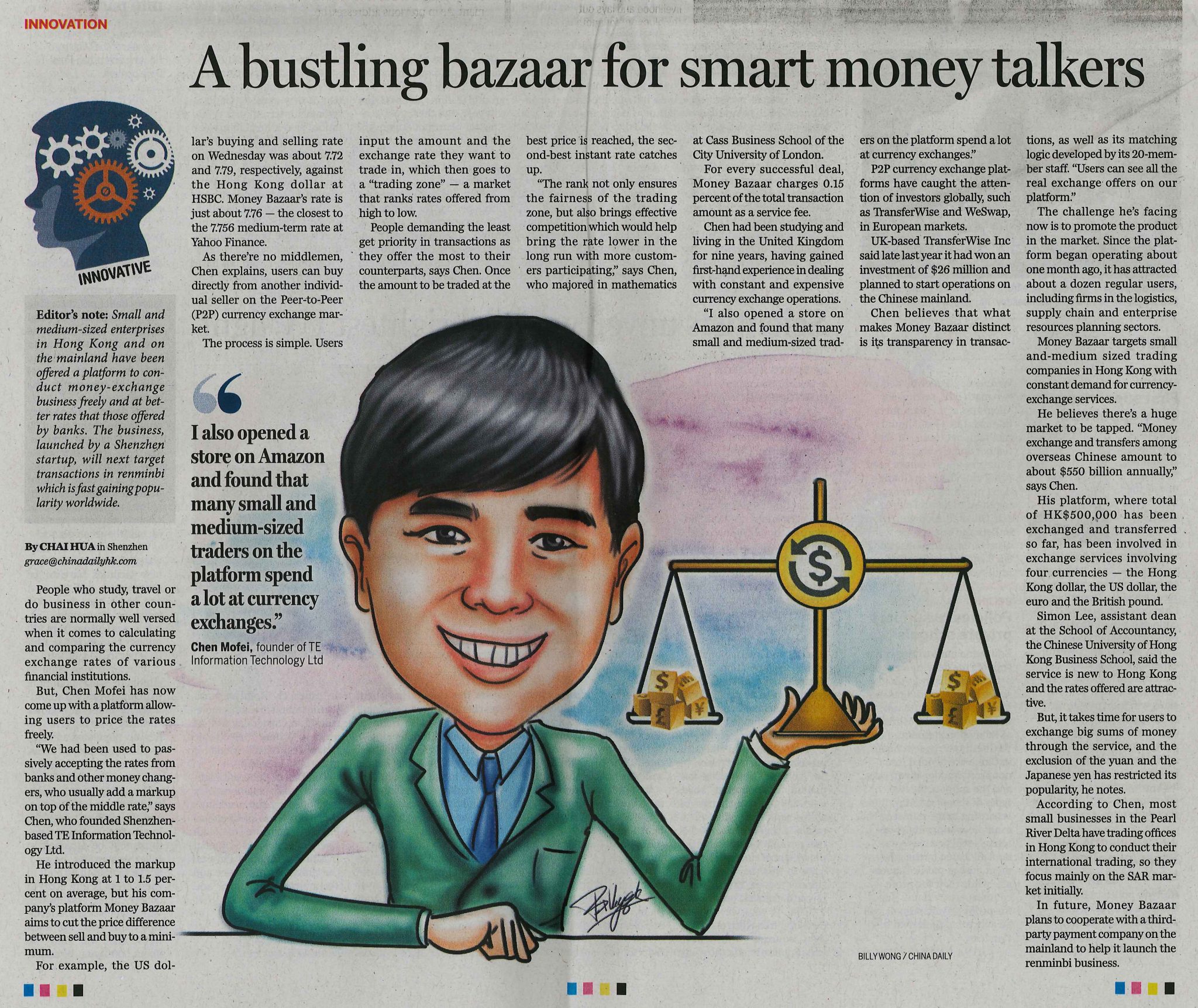A Bustling Bazaar for Smart Money Talkers

Commenting on Money Bazaar, a new P2P currency exchange service, Simon Lee said in an interview with China Daily that the service is new to Hong Kong and the rates offered are attractive, but it takes time for users to exchange big sums of money through the service.
People who study, travel or do business in other countries are normally well versed when it comes to calculating and comparing the currency exchange rates of various financial institutions.
Mofei Chen, founder of Shenzhen-based TE Information Technology Ltd, has come up with a Peer-to-Peer (P2P) currency exchange services platform called Money Bazaar which allows users to price the rates freely.
“We had been used to passively accepting the rates from banks and other money changers, who usually add a markup on top of the middle rate,” says Chen.
He introduced the markup in Hong Kong at 1 to 1.5 percent on average, but his company’s platform Money Bazaar aims to cut the price difference between sell and buy to a minimum.
As there’re no middlemen, Chen explains, users can buy directly from another individual seller on the P2P currency exchange market through Money Bazaar.
The process is simple. Users input the amount and the exchange rate they want to trade in, which then goes to a “trading zone” – a market that ranks rates offered from high to low.
People demanding the least get priority in transactions as they offer the most to their counterparts, says Chen. Once the amount to be traded at the best price is reached, the second-best instant rate catches up.
Money Bazaar targets small and-medium sized trading companies in Hong Kong with constant demand for currency-exchange services.
Simon Lee, Assistant Dean (Undergraduate Studies) and Senior Lecturer of School of Accountancy at The Chinese University of Hong Kong Business School, said in an interview with China Daily that the service is new to Hong Kong and the rates offered are attractive.
But, it takes time for users to exchange big sums of money through the service, and the exclusion of the yuan and the Japanese yen has restricted its popularity, he notes… Read More (PDF)
Source: China Daily
Date published: 19 January, 2017
Photo: China Daily


